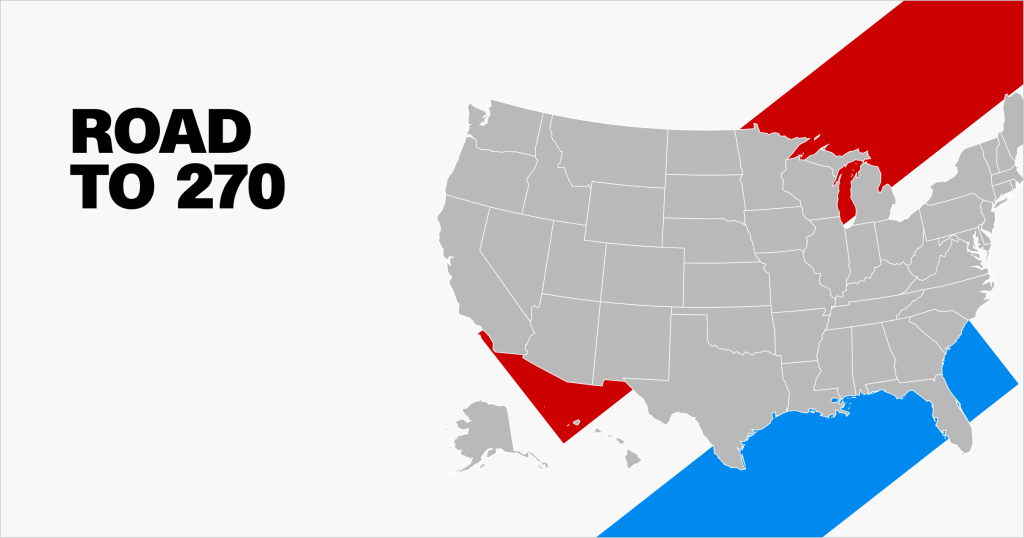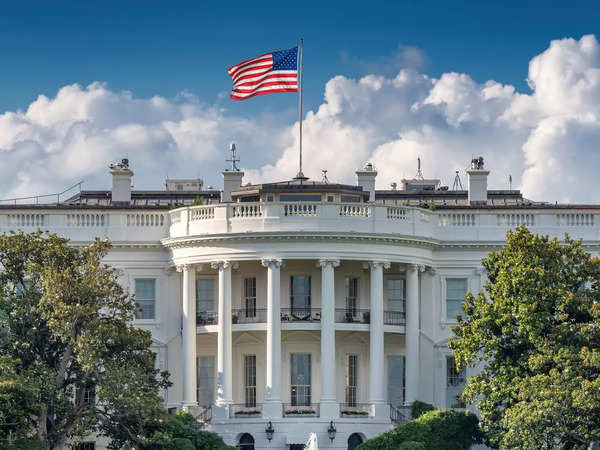As the 2024 presidential elections in the United States begin on Tuesday, the stakes are at an all-time high. With a highly divided electorate, persistent social and economic issues, and escalating global geopolitical tensions, the outcome of this election will have a tremendous impact on the nation’s future and globally. In this piece, we examine the significance of these elections and the elements that may sway voter decisions.
The 60th presidential election in the US will determine who will serve as the 47th president—the position often regarded as the most influential globally. Candidates and their supporters claim that this election is arguably the most significant in their lives, saying that democracy and the essence of American life hinge on its outcome. Unprecedented amounts of money have been raised and spent on campaign advertisements and grassroots efforts. The intensity and division of media coverage have reached levels never seen before.

Historical Perspective
U.S. presidential elections have always been critical junctures in the country’s political history. However, the forthcoming election will occur in an era of unparalleled division and urgency. Topics such as climate change, healthcare, economic disparity, social justice and, very importantly, abortion are at the forefront, illustrating a population that is more outspoken about its needs. Voter participation in this election may be influenced not just by traditional party allegiance but also by these urgent issues.
Although the United States claims to be one of the foremost democracies globally, it is piercingly ironic that its citizens do not get to elect the president directly. This responsibility falls to the electoral college, a complex system for selecting the president since the late 1700s.
Despite its name, the Electoral College functions more as a procedure than an assembly. Every four years, in December following the election, its members – a mix of politicians and largely unknown party supporters – gather in all of America’s 50 states on the same day to cast their votes for the president. After that, they effectively vanish from public view till the next polls.
The value of the Electoral College system has been a subject of continuous discussion in the United States since it was established at the Constitutional Convention in 1787. It became increasingly contentious from the late 19th century to modern times, especially when two Republicans, George W. Bush in 2000 and Donald Trump in 2016, became president even though they lost the popular votes. More proposals to change the Electoral College process have been presented than for any other section of the Constitution, but there has been no indication that anything will change.
What is the Electoral College?
In the United States, the Electoral College consists of presidential electors who convene every four years during the presidential election, specifically to cast votes for the president and vice president. This process is outlined in Article Two of the US Constitution.
The number of electoral votes allocated to each state corresponds to its congressional delegation, including its Senators and Representatives. Each state selects its electors through legal methods specified by its legislature. Individuals holding federal office, such as secretaries (ministers) and lawmakers, are prohibited from being electors. Furthermore, the Twenty-third Amendment awarded three electors to the Federal District of Columbia (Washington), increasing the total from 535 to 538.
To elect the president and vice president, a candidate must secure 270 or more electoral votes. If no candidate obtains a majority, the House of Representatives conducts a contingent election to choose the president, while the Senate selects the vice president.

On Election Day in November, states and the District of Columbia conduct a popular vote statewide or by district to determine which electors will represent them based on their pledged votes for president and vice president.
All states, except Maine and Nebraska, employ a party block voting system, also known as the general ticket method, to select their electors, meaning that all electors from a state go to the winning ticket. In contrast, Maine and Nebraska assign one elector for each congressional district and two electors to the ticket that receives the highest statewide vote. The electors convene in December to cast their votes, and the inauguration of the president and vice president occurs in January.
After the end of the 20th century, the United States became the only democracy left using the electoral college after all other democracies globally discarded it in favour of directly electing an executive president.
The Candidates
Incumbent Vice President Kamala Harris: Harris, 60, secured the Democratic party’s nomination following President Joe Biden’s decision to step down from the electoral process after already being the presumptive nominee for the party.
She is a former senator, California attorney general, and San Francisco prosecutor. If she wins the polls, she will become the first woman and the first woman of colour elected as president of the United States.
Former President Donald Trump: The 78-year-old businessman and media personality is taking his third consecutive shot at the White House following his defeat in the 2020 elections. The Republican nominee—the oldest major party nominee ever—is the only president to have been impeached twice and convicted of a crime. However, he will become only the second candidate to reclaim the presidency after Grover Cleveland.
Chase Oliver: Oliver, 39, is a relatively unknown candidate running on the platform of the Libertarian party, which receives some support in several swing states. He previously ran for a Georgia state senate position in 2022, where he received 2% of the votes.
Jill Stein: Stein, a 74-year-old physician, is having her third shot at the presidency. She previously ran under the Green-Rainbow party in 2012 and 2016 and is contesting again in 2024.
She has run for Massachusetts governor twice, losing to Mitt Romney in 2002 and incumbent Deval Patrick in 2010. She is one of three women who have received at least a million votes in the general elections behind Hillary Clinton and Jo Jorgensen.
Cornel West: Political activist and theologian West is an independent candidate. The 71-year-old philosopher and academic strives to appeal to more progressive voters who typically align with the Democratic party.
Current Poll Standings
Harris and Trump are currently even at 48% each in the popular vote, based on several national polls. Trump was the solid favourite to win the elections following a string of erratic performances by Joe Biden during their debates. However, his lead has been cut and even surpassed at some point as soon as Biden exited and Harris emerged. The race has levelled off in the last few weeks, resulting in a knife-edge outlook.
With the race neck-on-neck, it appears the swing states will determine the electoral college and, ultimately, the winner. Polls show that Trump has a slight lead in Arizona, Georgia, Michigan, and Wisconsin. Harris is ahead in Nevada and Pennsylvania and deadlocked in North Carolina – though any of these could sway in either direction.
The upcoming election will serve as another examination for a polling industry that faced criticism during the 2016 and 2020 elections for allegedly underestimating Trump’s support. On the other hand, during the 2022 midterms, Democrats outperformed expectations from the polls, though some claimed the hot issue of abortion rights contributed to their strong performance.
Abortion the Game Changer?
This will be the first presidential election following the Supreme Court’s decision to overturn Roe v. Wade, the landmark 1973 ruling that established the constitutional right to abortion. Since then, several Republican-led states have enacted or nearly total bans on the procedure.
In multiple 2022 House special elections, Democrats achieved better results than Biden did in the 2020 U.S. presidential election, with abortion being a significant factor in their successes. Consequently, numerous conservative political analysts and commentators highlighted that a continued alliance of the Republican Party with the anti-abortion movement was a potential electoral disaster, recommending that the party should support abortion rights instead.

Some polling on this issue has indicated that Donald Trump, the Republican nominee for the 2024 Presidential election, is performing better than his party on the topic of abortion and is narrowing the gap with Democrats; however, there has been no electoral data available yet with Trump directly on the ballot to confirm these findings.
Harris has focused on reproductive rights and personal freedoms as critical themes in her campaign and supports a national law to ensure access to safe abortion. Trump, meanwhile, has had difficulty establishing a clear position on the matter, maintaining that it should be handled at the state level while eventually dismissing the idea of a national ban.
Ten states, including Arizona, Colorado, and Florida, have measures concerning abortion on their ballots. Meanwhile, Florida, North Dakota, and South Dakota are deliberating on voting on whether to legalise marijuana.
When Will the Winner Emerge?
Typically, voters have grown accustomed to the expectation that they will know who the next president will be by late election night or at least by the early hours of the following morning.
For instance, in 2016, Trump won the presidency the morning after the election, while Barack Obama won a second term in 2012 before midnight on election day itself.

However, one significant recent exception was the 2000 election between George W. Bush and Al Gore. The two campaigns fiercely battled over a closely contested race in Florida, and the outcome was not determined until December 12, when the US Supreme Court voted to conclude the state’s recount, affirming Bush as the winner.
Regardless of when the winner is determined, The 47th president of the United States will take the oath of office at noon on January 20 at the US Capitol, with large crowds expected after the scaled-down event of the 2020 inauguration due to the COVID-19 pandemic.
The outgoing president usually attends the inauguration as an indication of the peaceful transition of power. However, Trump broke with the 152-year tradition by flying straight to his Florida resort after he unsuccessfully urged his supporters to storm Congress in an attempt to upturn the election outcome.
Could Donald Trump become the second individual after Grover Cleveland to reclaim the presidency after losing it, or will Kamala Harris even make more history by becoming the first woman to occupy the White House after becoming the first woman Vice President? America will decide.


